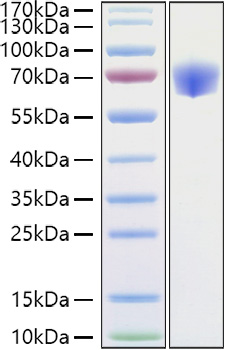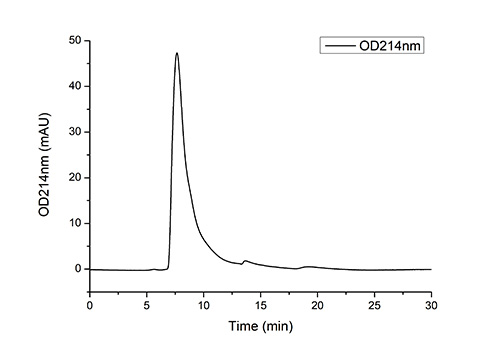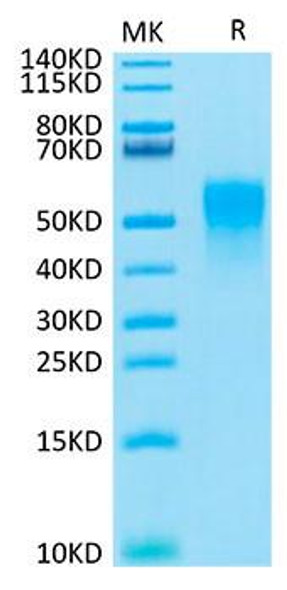Recombinant Mouse TNFRSF1B/TNF-R2/CD120b Protein (RPCB1152)
- SKU:
- RPCB1152
- Size:
- 10µg
- Tag:
- C-hFc
- Reactivity:
- Mouse
- Expression Host:
- HEK293 cells
Description
| Product Name: | Recombinant Mouse TNFRSF1B/TNF-R2/CD120b Protein |
| SKU: | RPCB1152 |
| Size: | 10µg |
| Tag: | C-hFc |
| Reactivity: | Mouse |
| Expression Host: | HEK293 cells |
| Protein Description: | High quality, high purity and low endotoxin recombinant Recombinant Mouse TNFRSF1B/TNF-R2/CD120b Protein , tested reactivity in HEK293 cells and has been validated in SDS-PAGE.100% guaranteed. |
| Endotoxin: | <0.1EU/μg |
| Purity: | > 95% by SDS-PAGE. |
| Formulation: | Lyophilized from a 0.22 μm filtered solution of PBS, pH 7.4. |
| Gene ID: | 21938 |
Tumor necrosis factor receptor superfamily, member 1B (TNFRSF1B), also known as Tumor necrosis factor receptor 2 (TNFR2) or CD120b antigen, is a member of the tumor necrosis factor receptor superfamily. TNFR2/CD120b/TNFRSF1B is a member of the TNF-receptor superfamily. This protein and TNF-receptor 1 form a heterocomplex that mediates the recruitment of two anti-apoptotic proteins, c-IAP1 and c-IAP2, which possess E3 ubiquitin ligase activity. Knockout studies in mice also suggest a role of this protein in protecting neurons from apoptosis by stimulating antioxidative pathways. TNFR2/CD120b/TNFRSF1B is not a major contributing factor to the genetic risk of type 2 diabetes, its associated peripheral neuropathy and hypertension and related metabolic traits in North Indians. Tumor necrosis factor receptor superfamily, member 1B (TNFRSF1B) has been reported to be associated with SLE risk in Japanese populations. TNFR2/CD120b/TNFRSF1B serves as a receptor with high affinity for TNFSF2 and approximately 5-fold lower affinity for homotrimeric TNFSF1. This receptor mediates most of the metabolic effects of TNF-alpha. Isoform 2 blocks TNF-alpha-induced apoptosis, which suggests that it regulates TNF-alpha function by antagonizing its biological activity.
| Storage: | Store at -20℃.Store the lyophilized protein at -20℃ to -80 ℃ up to 1 year from the date of receipt.After reconstitution, the protein solution is stable at -20℃ for 3 months, at 2-8℃ for up to 1 week. |
| Reconstitution: | Centrifuge the vial before opening. Reconstitute to a concentration of 0.1-0.5 mg/mL in sterile distilled water. Avoid vortex or vigorously pipetting the protein. For long term storage, it is recommended to add a carrier protein or stablizer (e.g. 0.1% BSA, 5% HSA, 10% FBS or 5% Trehalose), and aliquot the reconstituted protein solution to minimize free-thaw cycles. |
| Swiss-Prot: | P25119 |








